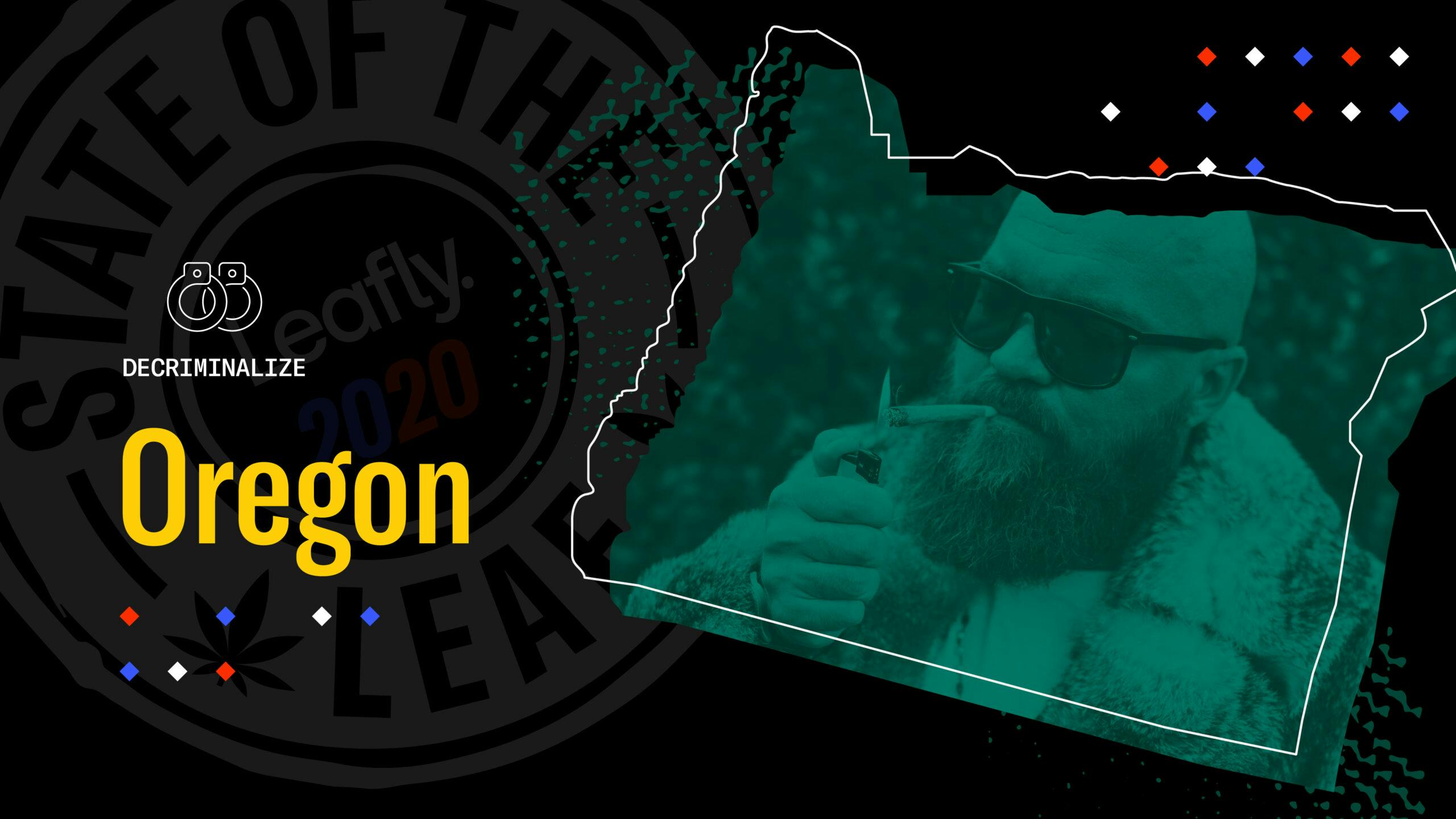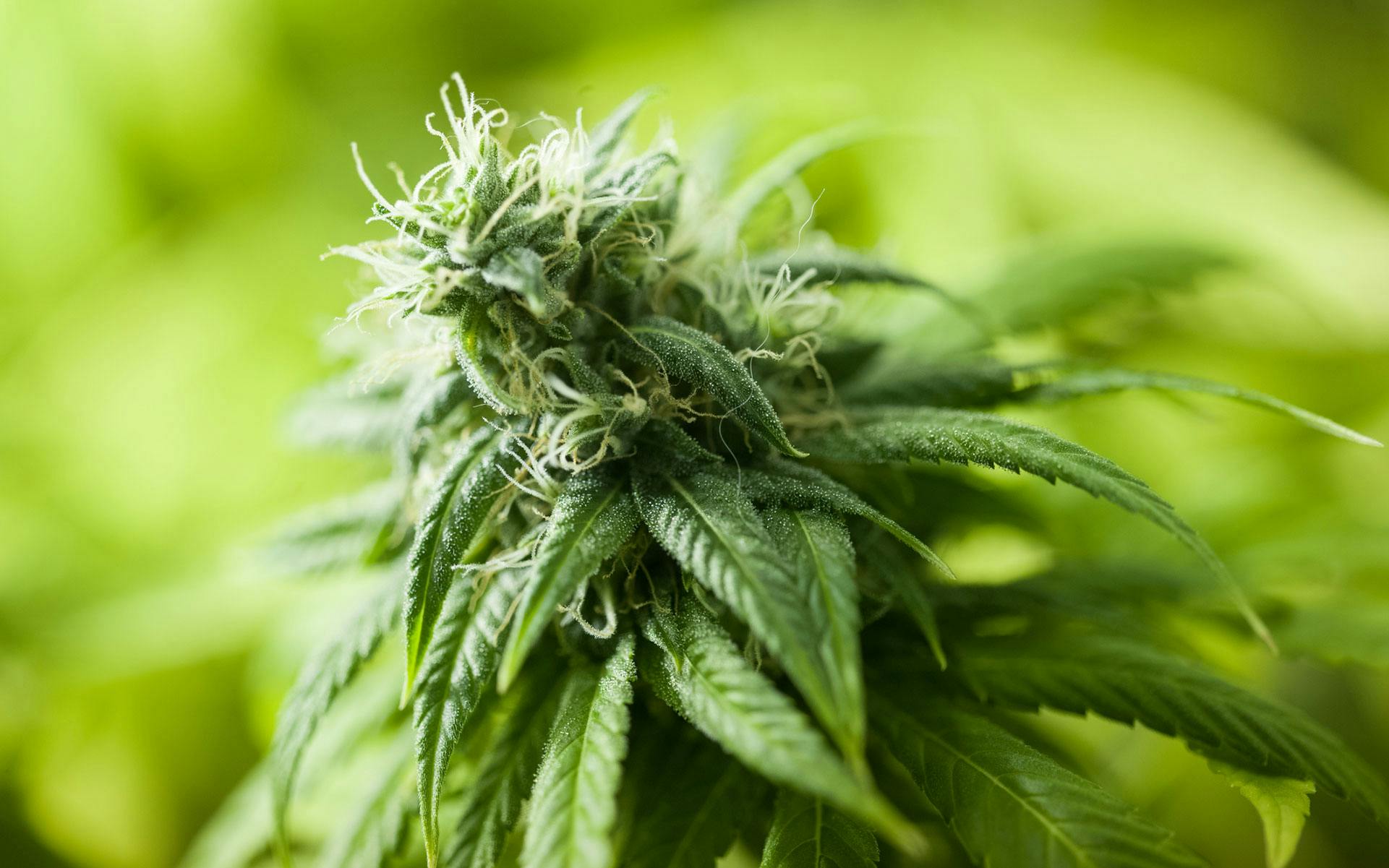Is marijuana legal in Oregon?
Current legality status
recreational
Cannabis is legal under state law for adults 21+.
Recreational marijuana is legal in Oregon for all adults age 21 and older. Medical marijuana is legal for patients age 18 or older. Those under 18 must have legal authorization from a parent or guardian.
With more than 900 licensed retailers, Oregon is one of America’s best states for cannabis access. On a Top 10 list of cities ranked according to marijuana stores per capita, five of the top ten cities in early 2020 were in Oregon.
Oregon’s sun and soil are ideal for cannabis cultivation. The state’s weed farmers harvest so much marijuana that Oregon legislators are actively advocating to allow growers to export to other legal states.
How much marijuana can I possess in Oregon?
Oregon maintains separate tiers of possession limits for adult consumers. Possession is considered “in public” if cannabis is possessed anywhere outside a private residence—a vehicle is not considered a private residence.
So you can only buy up to one ounce of cannabis flower, for example, but you can legally possess up to eight ounces of cannabis flower in your private residence. Medical patients registered with the state are legally allowed to possess greater amounts.
| ADULTS in public may possess up to: | ADULTS in private may possess up to: | PATIENTS may possess up to: |
|---|---|---|
| 1 ounce of flower | 8 ounces of flower | 24 ounces of flower |
| 1 ounce of a cannabis concentrate (oil, wax, shatter, rosin, etc) | 1 ounce of a cannabis concentrate (oil, wax, shatter, rosin, etc) | 16 ounces of a cannabis concentrate (oil, wax, shatter, rosin, etc) |
| 16 ounces of an infused edible | 16 ounces of an infused edible | 16 ounces of an infused edible |
| 72 ounces of an infused beverage | 72 ounces of an infused beverage | 72 ounces of an infused beverage |
| 4 marijuana plants | 4 marijuana plants | 4 marijuana plants |
| 10 cannabis seeds | 10 cannabis seeds | 50 cannabis seeds |
Marijuana is legal for adults in Oregon, but there are limits—and stepping outside those limits could result in a fine or even jail time.
Here are the current penalties:
| Situation | Penalty | Incarceration | Monetary fine |
|---|---|---|---|
| (Public) possession of up to 1 ounce cannabis flower | None | None | $0 |
| (Public) possession of 1.1 to 2 ounces | Violation | None | $650 |
| (Public) possession of 2.1 to 4 ounces | Misdemeanor | 6 months jail | $2,500 |
| (Public) possession of more than 4 ounces | Misdemeanor | 1 year jail | $6,250 |
| (Private) possession of 8 oz or less of flower | None | None | $0 |
| (Private) possession of 8.1oz to 2 pounds of flower | Misdemeanor | 6 months jail | $2,500 |
| (Private) possession of more than 2 pounds of cannabis flower | Misdemeanor | 1 year jail | $6,250 |
| Homegrow: Up to 4 plants | None | None | $0 |
| Homegrow: 5 to 8 plants | Misdemeaner | 6 months jail | $2,500 |
| Homegrow: more than 8 plants | Felony | 5 years prison | $125,000 |
| Commercial grow, unlicensed, more than 8 plants, within 1,000 feet of a school | Felony | 20 years prison | $375,000 |
Oregon recreational marijuana laws
Decriminalization: 1973
Oregon voters have always been in the vanguard of progressive drug reform. The state decriminalized small amounts of marijuana way back in 1973, making possession of up to once ounce punishable by a $500 to $1,000 fine but no jail time. Growing any amount, and possessing larger amounts, remained heavily punished, however. Growing just a single plant, for example, remained a felony until 2015.
Shop highly rated dispensaries near you
Showing you dispensaries nearMedical: 1998
Voters passed Ballot Measure 67, the Oregon Medical Marijuana Act, in late 1998, four years after California adopted the nation’s first medical marijuana legalization measure. The Oregon Department of Human Services administers the program through the Oregon Medical Marijuana Program (OMMP). The OMMP maintains an excellent website with clear instructions and FAQs.
Adult use: 2014
While Colorado and Washington voters approved the nation’s first recreational marijuana legalization laws in November 2012, Oregon voters rejected (53% to 47%) a similar measure the same day.
Two years later, however, those same voters approved Measure 91, recreational cannabis legalization, by a margin of 56% to 44%. The positive examples of Colorado and Washington, where adult-use stores opened earlier in 2014, convinced many Oregon voters that legalization’s time had come.
Post-legalization: bountiful harvest, too much weed for one state
Ideal growing conditions, combined with generous limits on cultivation, have Oregon swimming in a surplus of rich, delicious, high-quality weed. By 2019 the state’s growers had more than one million pounds of harvested flower sitting in storage.
California has a well-earned reputation for producing much of America’s illicit cannabis crop, but by 2020, Oregon’s illicit-market outflow was pretty much an open secret.
This is one of the problems of federal prohibition: Cannabis growers and consumers aren’t equally distributed across all states. Oregon farmers grow tons of weed with relatively few consumers. New Jersey has millions of eager consumers, but not a lot of space to grow the crop, both in terms of legal space and actual soil. It’s like forcing Nebraskans to eat all the corn they grow and prohibiting farmers from selling it out of state.
Oregon politicians are out in front of the issue, as usual. In 2019, Governor Kate Brown signed a law allowing Oregon to enter interstate compacts with other legal cannabis states on its borders—Washington, Nevada, and California—as soon as the federal government grants permission. Days later, Oregon Sen. Ron Wyden and Rep. Earl Blumenauer introduced a bill to allow Oregon growers to ship cannabis across state lines. That bill remains stalled in Congress.
Legalization beyond cannabis
Oregon continues its role as a pioneer in 2020 with the introduction of two drug decriminalization measures on the November statewide ballot.
Both initiatives passed on election night Nov. 3, 2020.
IP 34, the Oregon Psilocybin Program Initiative, allows licensed therapists to legally prescribe precise, regulated doses of psilocybin—the active ingredient in hallucinogenic mushrooms—as part of their practice.
IP 44, the Oregon Drug Addiction Treatment and Recovery Act, removes criminal penalties for the personal, non-commercial possession of all drugs. Possession of small quantities would be classified as a violation similar to a speeding ticket. The law is the first of its kind in the US.
Register to vote in Oregon using this online form
Oregon medical marijuana laws
Oregon legalized the recreational use of cannabis for all adults in 2014, but medical patients still retain special rights within the state’s legal system.
There are two main advantages to having a state-issued MMJ card: Medical patients pay no tax on marijuana, and patients may possess higher amounts of cannabis products than the general public.
About 65,000 Oregonians have state-issued medical marijuana cards.
Oregon qualifying conditions for medical marijuana
A physician may recommend the use of medical marijuana for these conditions:
- Cancer
- Glaucoma
- A degenerative or pervasive neurological condition
- HIV/AIDS
- Post-traumatic stress disorder (PTSD)
- A medical condition or treatment for a medical condition that produces one or more of the following:
– Cachexia (a weight-loss disease that can be caused by HIV or cancer)
– Severe pain
– Severe nausea
– Seizures, including but not limited to seizures caused by epilepsy
– Persistent muscle spasm, including but not limited to spasms caused by MS
Does Oregon accept out-of-state medical cards?
No, Oregon does not offer reciprocity, although since it is a legal recreational marijuana state, anyone who is 21 and over, including out-of-state visitors, may legally purchase cannabis for adult use.
How to get a medical marijuana card in Oregon
Patients may apply via the Oregon Health Authority’s online OMMP portal. If you think you might be a candidate for medical marijuana, start the process early because it involves a doctor visit and paperwork processing time.
Cost of a medical marijuana card in Oregon
It’s not cheap—a medical marijuana card costs $200 in Oregon. Substantial discounts exist for SNAP recipients, Oregon Health Plan members, social security recipients, and military veterans, so look into those if you qualify.
The card must be renewed annually, which is a significant investment, but if you’re a medical patient it might be worth it—recreational marijuana is taxed at 17-20%, while medical marijuana is not taxed.
Rule of thumb: If you’re a patient spending more than $100 per month on marijuana, it’s worth the investment to get a state medical marijuana card. The tax savings will more than pay off the cost of the card.
Oregon marijuana growing laws
Recreational marijuana consumers 21 years of age and older may possess up to four (4) plants per residence.
A registered Oregon medical marijuana patient may possess up to six (6) mature plants, which must be grown at a registered grow site address.
Caregivers, or OMMP growers, cannot be growing for more than four (4) patients at a time, and cannot grow more than six (6) mature plants per patient.
Oregon cannabis DUI laws
Like everywhere else, it’s illegal to drive while under the influence of alcohol, cannabis, or other controlled substances in Oregon. There is no per se limit in Oregon, which means a cannabis-related DUI arrest and/or conviction does not rest solely on a blood test.
But there are many ways to get popped for a cannabis-related DUI in Oregon. The primary definition of DUI is: Driving on public highways or premises open to the public while adversely affected to a noticeable or perceptible degree by the use of controlled substances.
It’s all in the eye of the observer—and the observer will be the police officer or state trooper who pulls you over.
Portland-based attorney Michael Romano specializes in marijuana DUI defense. He writes:
“Whether you enjoy recreational marijuana or use marijuana medicinally, if you use within weeks of driving, you are a target for law enforcement investigation, arrest, and charging of DUI. While Oregon law presumes that a driver with a blood alcohol concentration (BAC) of .08 by weight is intoxicated or impaired by the use of alcohol, there is no such presumption if marijuana metabolites are present in small quantities or large quantities. The mere presence of marijuana metabolites over minimal threshold levels—combined with an officer’s suspicion of recent marijuana use—could be the basis for arrest and criminal charges.”
Oregon uses Drug Recognition Experts (DREs) to evaluate whether a given driver is under the influence. According to the Drug Symptom Matrix relied upon by DREs, “general indicators” of cannabis use include:
- Very red eyes
- Odor of marijuana
- Body tremors
- Eyelid tremors
- Relaxed inhibitions
- Increased appetite
- Impaired perception of time and distance
- Possible paranoia
- Disorientation
The penalties are severe for intoxicated driving on any substance. They start at 48 hours in jail, and increase according to first, second, or third offense. Penalties are substantially higher if a minor (under 18) is a passenger in the vehicle at the time of the driver’s arrest.
Common questions about marijuana legalization in Oregon
Is Oregon recreational?
Yes, Oregon is a recreational weed state. Since Nov. 2014, it’s been legal for all adults 21 and older to possess up to one ounce of cannabis flower. State-licensed recreational marijuana stores have been open since 2015.
Is CBD legal in Oregon?
Yes, CBD is legal and available (without a state cannabis license) in any store in Oregon if it has under 0.3% THC. It is also legal to order CBD online from national retailers inside or outside Oregon if the product contains less than 0.3% THC.
CBD products with a THC content above 0.3% are regulated by the state cannabis licensing system and may only be purchased from state-licensed cannabis stores.
Is smokable hemp allowed in Oregon?
Yes, smokable hemp is allowed in Oregon.
Can my landlord prohibit marijuana in my own apartment, house, or condo?
Yes and no. A landlord may not infringe upon a tenant’s right to purchase or possess legal cannabis products. But as with tobacco smoking and pets, a landlord may prohibit growing, smoking, vaping, and dabbing on the grounds of real or potential property destruction and/or odor nuisance.
Note: Marijuana possession remains prohibited in federally subsidized housing, or housing that uses Section 8 vouchers. In those places, possession or use may result in eviction.
Are there places in Oregon where marijuana is still outlawed?
Yes. All forms of cannabis remain illegal on federal property. Examples include national parks, national forests, land managed by the US Bureau of Land Management, federal prisons, and all federal buildings and offices regardless of department. Federally subsidized housing units also prohibit all forms of cannabis, including simple possession.
Learn more about marijuana legalization in Oregon
Keep up with the latest news about legalization in Oregon
Stay current on Oregon’s fast-changing laws by bookmarking Leafly politics and signing up for our newsletter.
Post last updated Nov. 4, 2020
By providing us with your email address, you agree to Leafly's Terms of Service and Privacy Policy.


